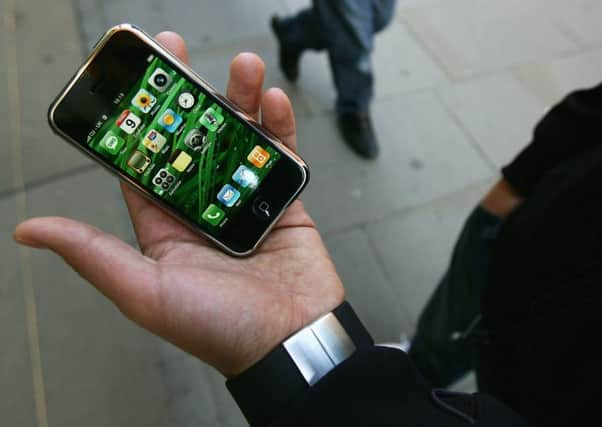Report suggests accused persons use smartphones to submit plea
This article contains affiliate links. We may earn a small commission on items purchased through this article, but that does not affect our editorial judgement.


The move would be part of a “modern digital case management process” aimed at making the criminal justice system more efficient.
The report, by the Scottish Courts and Tribunals Service, states: “The world was and is changing rapidly, and with it so too are people’s expectations of public services.”
Advertisement
Hide AdIt adds that “in an era in which people and businesses communicate instantly by electronic messaging and social media, they will expect public services to adopt similar methods rather than cling to paper and postal-based practices”.
It comes after a report from the court service last year set out to “generate proposals for changes to the law, procedures and practice that will contribute to the modernisation of the criminal justice system so that it meets the highest standards of justice now and in the foreseeable future”.
Prior to that, in May 2013, the then Lord Justice Clerk, Lord Carloway, delivered a speech in Edinburgh in which he called for “clear-sky thinking” to help bring trial procedures rooted in the Victorian era more up to date, using the latest digital technology.
Last year’s report proposed a greater use of digital evidence, including changes such as recordings of witnesses giving evidence being shown, rather than having their statements written down and then read out in court.
A follow-up report, the Evidence and Procedure Review - Next Steps paper, was published in February and made a number of recommendations.
It called for a “significant re-design of summary criminal procedures in a way that takes full advantage of the new technologies that are available”, and also said that work evidence could be stored safely and securely.
Advertisement
Hide AdThe report went on to state that “there should be further development of proposals to reform criminal procedures to allow for a more streamlined, digitally-enabled justice process.
“This work will need to look at what changes to legislation, procedures and practice may be required to allow for a system in which cases are managed actively by the judiciary and administratively prior to trial, where appearances are reduced by the ability to submit a plea online, and where trials proceed only where the court is confident that all parties are properly prepared and that witnesses are not being cited unnecessarily.”
Advertisement
Hide AdSwitching to a system that “fully employs digital evidence” could have a number of benefits, according to the report.
Such a system should allow both prosecutors and defence to see evidence much earlier, allowing for cases to be prepared at an earlier stage and with greater certainty as to the evidence that will be presented at trial.
“This should allow for a range of efficiencies, including the earlier and more widespread agreement of uncontroversial evidence, and the earlier resolution of cases, either by means of an accepted not guilty plea or earlier guilty pleas,” the report said.
“A modern digital case management process may also be able to offer other benefits such as a ‘track your case’ style system for witnesses or accused persons who will be able to keep track of the digital case process easily, for example via smartphones.
“This interactive digital process may also include a ‘make a plea online’ element for unrepresented accused, allowing pleas currently dealt with by post to be fully digitised.”
DOWNLOAD THE SCOTSMAN APP ON ITUNES OR GOOGLE PLAY
